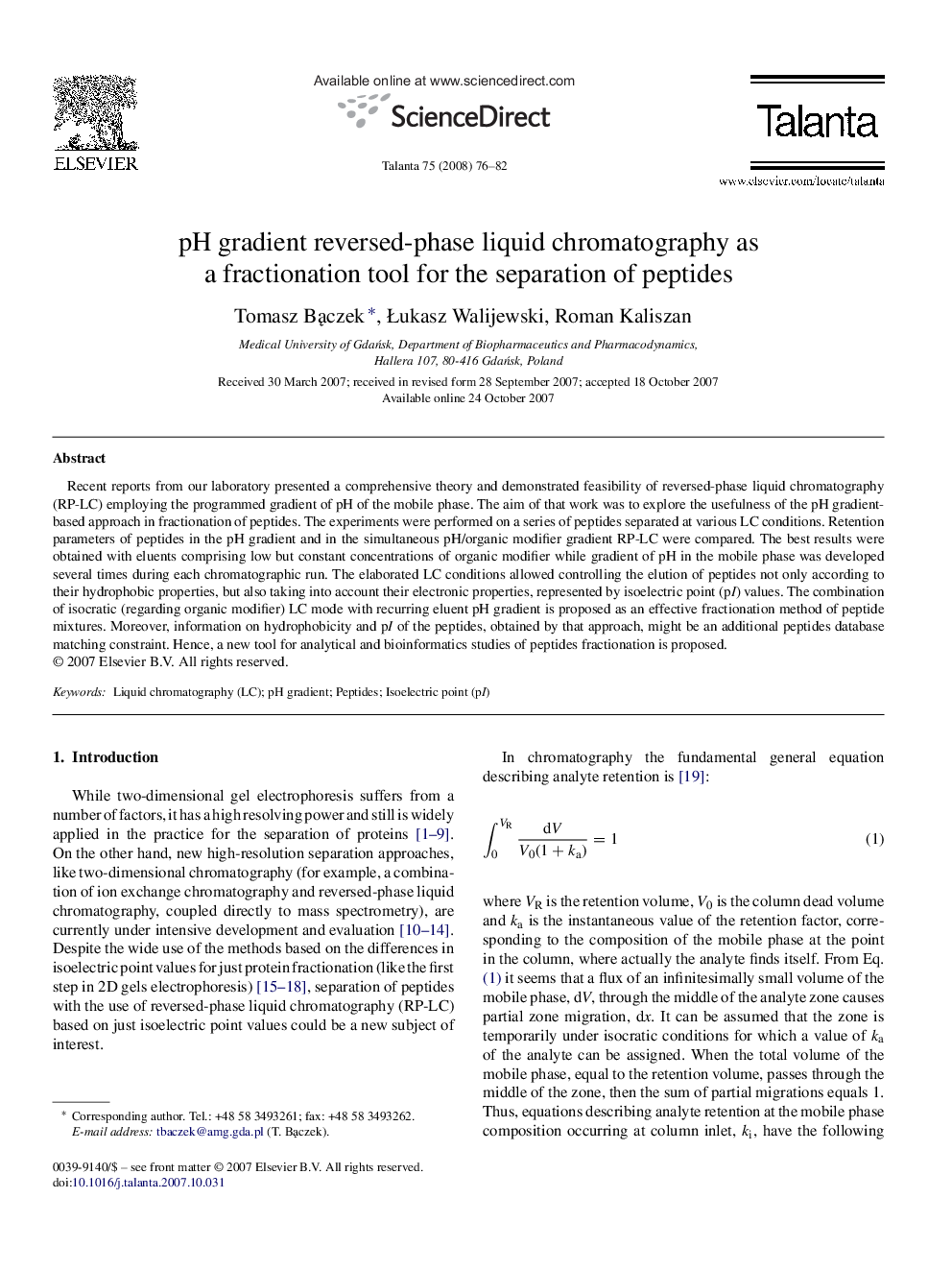| Article ID | Journal | Published Year | Pages | File Type |
|---|---|---|---|---|
| 1245522 | Talanta | 2008 | 7 Pages |
Recent reports from our laboratory presented a comprehensive theory and demonstrated feasibility of reversed-phase liquid chromatography (RP-LC) employing the programmed gradient of pH of the mobile phase. The aim of that work was to explore the usefulness of the pH gradient-based approach in fractionation of peptides. The experiments were performed on a series of peptides separated at various LC conditions. Retention parameters of peptides in the pH gradient and in the simultaneous pH/organic modifier gradient RP-LC were compared. The best results were obtained with eluents comprising low but constant concentrations of organic modifier while gradient of pH in the mobile phase was developed several times during each chromatographic run. The elaborated LC conditions allowed controlling the elution of peptides not only according to their hydrophobic properties, but also taking into account their electronic properties, represented by isoelectric point (pI) values. The combination of isocratic (regarding organic modifier) LC mode with recurring eluent pH gradient is proposed as an effective fractionation method of peptide mixtures. Moreover, information on hydrophobicity and pI of the peptides, obtained by that approach, might be an additional peptides database matching constraint. Hence, a new tool for analytical and bioinformatics studies of peptides fractionation is proposed.
